Terrible! Sad! FAKE! Very bad!
What we learned from Trump's first 100 days

By David Smith and Sam Morris
After 100 days of sound and fury in Washington, words such as unprecedented and normal have been drained of meaning. But one thing has remained constant during Donald Trump's presidency: having lost the popular vote but won the electoral college, he took office with the lowest approval rating of any incoming president; he now has the lowest approval rating of any president at the 100-day mark, although polls suggest his base remains loyal. "He's learning on the job, which is dangerous," says Rich Galen, a Republican strategist, "but at least he's learning."
Best achievements
The most notable and durable achievement is Trump’s appointment of Neil Gorsuch to the supreme court, despite concerted opposition from Democrats which forced Republicans to change Senate rules. His selection was welcomed by conservatives craving a worthy successor to Antonin Scalia, who died 14 months ago.
Trump has also signed a record 13 resolutions to roll back regulations, billed by the White House as "getting government out of the way" to create jobs, and pulled out of the Trans-Pacific Partnership trade deal. He was hailed by some for moving swiftly to punish Syria for using chemical weapons.

Trump's greatest achievements

Trump's worst failures

Number of tweets
981

Number of executive orders
28
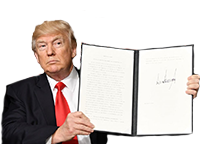
Time spent in Washington
81 days

World leaders Trump has met
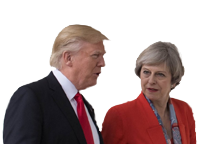
Trouble with Russia
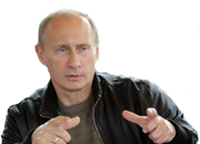
The fortunes of Trump's team

People, places and things Trump has insulted
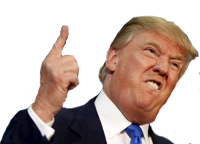
Regulation reform
Business-like moves including forcing federal agencies to cut two regulations for every new one
Supreme court judge
Trump got his pick for the vacant supreme court seat, Neil Gorsuch, after a row over rule changes
Easter egg roll
The 139th White House Easter egg roll passed off without major incident
Travel ban
Executive order to ban visitors to US from seven Muslim-majority countries prompted outcry and was defeated in court
Bogus wiretap claim
In early-morning tweets Trump accused Barack Obama of having him 'wiretapped', citing no evidence
Healthcare debacle
The promise to repeal and replace crashed in the Senate














Mike Flynn resigns
National security adviser quits over misleading accounts of chats with the Russian ambassador
Jeff Sessions
Attorney general recuses himself from Russian investigations after misleading statements over his contacts
FBI investigation
James Comey, publicly announces FBI is investigating possible Trump campaign coordination with Russia
Carter Page
Former Trump adviser was "strongly-pro Kremlin", a former employer tells the Guardian
Steve Bannon
Chief strategist's star waned after headlines said he was pulling all the strings
Ivanka Trump
First daughter makes White House role official and is a powerful partner alongside husband Jared Kushner
Jared Kushner
Ivanka's husband has ever expanding to-do list including solving Middle East peace process and opioids epidemic
Sean Spicer
White House press secretary becomes compulsive viewing amid terrible gaffes


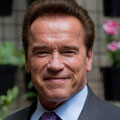



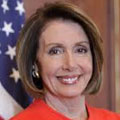





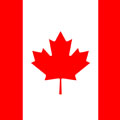
Worst failures
But to many observers, the list of failures is far longer. Trump’s rushed attempt to repeal and replace Obama’s signature healthcare legislation, which crashed in the House of Representatives, was “a debacle” . Trump, who has sold himself as the ultimate deal maker, could not strike the deal and reports suggested that he had little grasp of the details.
And soon after taking office, Trump signed an executive order to ban visitors from seven Muslim-majority countries; the result was an outcry over a betrayal of American values, pandemonium at airports and defeat in the courts. A revised ban met the same fate. It was an early victory for America’s system of checks and balances that prompted Trump to vent his frustration.
Tone
It became clear very quickly that President Trump would be the same as candidate Trump. In his inaugural address, he spoke of “American carnage” and set out a flinty nationalist agenda.
One day later, his press secretary, Sean Spicer, angrily berated the media over its reporting on the size of his inaugural crowd, falsely claiming that Trump’s had been bigger than Obama’s and setting the tone for 100 days of belligerence and combative relations with the press.
The president is still holding campaign rallies and still reflecting on the election as if happiest when he’s fighting. Sexism and racism have been less explicit than during the election campaign, but there have been peculiar incidents such as a failure to shake German chancellor Angela Merkel’s hand and the blunt language of “radical Islamic terrorism” .
Since becoming president, Trump has put out nearly a thousand tweets. Some are impulsively fired off at all hours of the night ”“ often in response to items broadcast on Fox News. A tone more different from Obama is harder to imagine.
Legislative agenda
At his first speech to a joint session of Congress, Trump promised a “new chapter in American greatness” . He spoke of healthcare reform, a tax overhaul, a trillion-dollar infrastructure package and a breath of life for dying industries to create millions of new jobs. There was also his plan to build a wall on the Mexican border, of which there is no sign of construction yet.
But while Trump has signed more executive orders than any of his 12 predecessors, he has no major legislation to his name and has failed to break the Washington gridlock.
After spending seven years fighting Obamacare, the Republican party could not get its act together to find a replacement that everyone agreed on. Similar divisions could plague sweeping tax reform, announced on Wednesday, while Trump's infrastructure package is likely to need support from Democrats, something they have no incentive under pressure from grassroots activists.
His failure to earn trust, for example because of his tweets baselessly accusing Obama of wiretapping, have “affected the ability of the president to get legislation achievements, which is crucial,” says Leon Panetta, former defence secretary and CIA director. “You cannot be a president and govern by executive orders. The fact he’s been issuing them all has been more politicking than effective policy, and some have run into checks and balances.”
Competence
Trump claimed at a freewheeling press conference that his administration is "running like a fine-tuned machine”. But he is the first president in US history to have no public sector experience, and some would say it shows in instances small and big.
There have been press releases with spelling mistakes and press briefings by Spicer littered with mispronunciations and worse; he was forced to apologize for claiming that Adolf Hitler did not use chemical weapons against his own people.
The travel ban was widely criticized as rushed with a chronic lack of basic consultation and fact-checking, for example on the status of green card holders from the affected countries. It ran into the buzzsaw of the courts. The healthcare bill fared no better, with the Congressional Budget Office warning that it would result in 24 million more uninsured Americans by 2026. “Nobody knew healthcare could be so complicated,” Trump confessed.
Trump has spent around three-quarters of his presidency at the White House. On numerous weekends he has gone to Mar-a-Lago, his “winter White House” in Palm Beach, Florida. He is regularly on the golf course despite criticizing Obama for playing while he was in office.
Benjamin Wittes, senior fellow in governance studies at the Brookings Institution in Washington, told an audience at the thinktank this week: “In the bilateral battle between malevolence and incompetence, incompetence is certainly winning.”
Global player
The election of Trump last November was a shot heard around the world. Rarely had there been such uncertainty in foreign capitals, yet the worst prophecies of doom have not come to pass.
So far it seems the Trump doctrine is that there is no doctrine, but rather a pragmatic response to circumstances on a case-by-case basis. The “America first” isolationism that fired up his supporters was jettisoned when the president saw primetime images of children and “beautiful babies” gassed in Syria. Trump ordered a strike by 59 Tomahawk missiles on a Syrian airfield in response.
The intervention was praised by Republican hawks as decisive leadership, but the president spoiled the effect somewhat in a TV interview in which he recalled ordering the attack over “the most beautiful piece of chocolate cake that you have ever seen” .
Aggressive postures have also been taken toward North Korea and Iran. Authoritarian figures in Egypt and Turkey have been embraced. There have also been head-snapping reversals, with Russia falling out of favor and China falling into favor and, as for Nato: “I said it was obsolete. It’s no longer obsolete.”
Panetta says: “I think the world has drawn some degree of comfort by virtue of the national security team, but there are still mixed messages going out as to whether there is any underlying strategy to the steps he’s taking on Syria and North Korea.”
The Russia question
US intelligence agencies concluded that Moscow-backed hackers meddled in the presidential election to tip the scales against Hillary Clinton and in favor of Trump. But the burning question is whether Trump’s campaign actively colluded with a foreign adversary ”“ a potential scandal bigger than Watergate.
There has been a drip of revelations and investigations launched by the House, Senate and FBI. It is not yet known if their witnesses will include Christopher Steele, a former British intelligence operative who compiled a dossier containing salacious allegations linking Trump to Moscow.
Mike Flynn became the first major casualty of the administration when he was forced to resign for misleading the vice-president, Mike Pence, over his conversations with Russian ambassador Sergey Kislyak. Attorney general Jeff Sessions also faced calls to quit and conceded: “I should have slowed down and said, ‘But I did meet one Russian official a couple of times.’”
According to recent reports, federal investigators have gathered intelligence that suggests Russian operatives may have used Carter Page, a former Merrill Lynch banker whom Trump referred to as a foreign policy adviser during the presidential race, to gain access to the candidate. Page, who has “pro-Kremlin” views, has denied sharing any information of consequence.
Team Trump
The internecine warfare, intrguing plot twists and rise and fall of various protagonists has made Game of Thrones look positively modest. For a while, it seemed that chief strategist Steve Bannon, anti-globalist advocate for dismantling the administrative state, was all powerful, but then the former head of Breitbart News apparently flew too close to the sun. Trump is said to have been irritated by what he saw as Bannon’s self-aggrandizing appearance on a Time magazine cover with the label “The Great Manipulator”.
Instead, it is now a New York faction that holds sway: first daughter Ivanka has a formal position and her husband, Jared Kushner, has an outsized portfolio, while Goldman Sachs veterans Gary Cohn, Trump's chief economic adviser, and Steven Mnuchin, the treasury secretary, increasingly have the president’s ear. The inner circle also includes Pence, White House chief of staff Reince Preibus, policy adviser Stephen Miller and senior adviser Kellyanne Conway, whose gaffes have included a reference to “alternative facts”.
Secretary of state Rex Tillerson made a slow start, but sprang into life at the time of the Syria strike with harsh words for Russia. Trump’s national security team has drawn particular praise: after Flynn’s departure, he chose the widely respected HR McMaster as national security adviser, a move that led to Bannon’s departure from the national security council. Defense secretary Jim Mattis is also a relatively conventional choice.
But other appointments have set alarm bells ringing. Sessions is an anti-immigration hardliner who has faced allegations of racism. Scott Pruitt, head of the Environmental Protection Agency, is a climate change skeptic who previously sued the agency 14 times.
Conflicts of interest
For a president to own an international business empire on such a scale is unprecedented. At a press conference on 11 January, Trump said he would remove himself from the day-to-day operation of his eponymous organization and put his holdings in a revocable trust managed by his two adult sons, Eric and Donald Jr.
But while this removes him from day-to-day decision making, ProPublica reported that Trump could draw money from the trust at any time without external disclosure.
The Trump International hotel, a few blocks from the White House, is popular with diplomats, raising the prospect that foreign governments could see booking expensive rooms there as a way to gain favor with the president.
And on the day that Ivanka Trump dined with Chinese president Xi Jinping at Mar-a-Lago, the Chinese government approved three new trademarks for her company to sell items in China. White House senior adviser Kellyanne Conway was reprimanded after urging TV viewers to buy Ivanka’s products.
The White House insists that Trump has made “sacrifices” and is not taking a salary, donating the first chunk to national parks. But the president continues to break with four decades of tradition by refusing to release his tax returns.
The next 100 days
All the evidence of the past 100 days suggests that the future is profoundly unpredictable. A second stab at healthcare reform could be imminent. The North Korea crisis is brewing. There are some clues that the early disarray in the White House may be gradually stabilizing. But Trump is still Trump, and that presents the world with a strange and sometimes frightening enigma. Panetta asks: "Is he the tweeting Trump who's the TV personality, or the businessman Trump who can be more responsible in terms of getting things done? The American people are still trying to figure out who is the real president of the United States."
